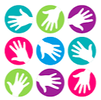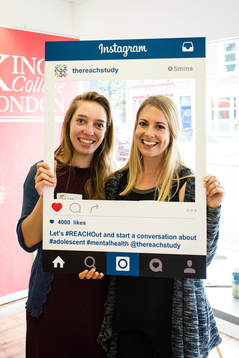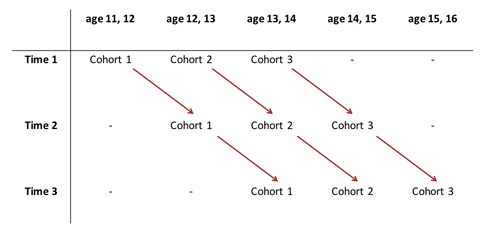|
Resilience, Ethnicity, and AdolesCent Mental Health (REACH)
Principal Investigator: Professor Craig Morgan Funded by the European Commission What is the aim of REACH?
Most mental health problems first emerge during adolescence. Their frequency, type, and persistence over time vary by ethnic group. Understanding what factors increase and decrease risk for such problems during these critical phases, in a range of ethnic groups, is important for developing strategies for prevention and intervention. REACH aims to investigate the impact of social, psychological, and biological risk and protective factors on the occurrence and persistence of mental health problems over time in large, ethnically diverse cohorts of adolescents. You can download a copy of the REACH Protocol by clicking the link below: |
How will REACH achieve this?
REACH has two parts.
First, REACH will recruit and follow, at one and two years, three cohorts/groups of around 1,000 adolescents aged 11-12, 12-13, and 13-14 (around 3000 participants in total). Participants will be recruited from 12 secondary schools in the London boroughs of Lambeth and Southwark.
All those who take part will complete, in class, a questionnaire at baseline, then again after 1 year (T2) and finally, after two years (T3) (see Figure). The questionnaire will include items on mental health and risk and protective factors.
Second, we will recruit a sub-sample of around 180 from each cohort (total, around 540) to complete, at T1 and T2, more detailed interviews and assessments and provide biological samples (e.g., a hair sample to measure cortisol, a stress hormone).
First, REACH will recruit and follow, at one and two years, three cohorts/groups of around 1,000 adolescents aged 11-12, 12-13, and 13-14 (around 3000 participants in total). Participants will be recruited from 12 secondary schools in the London boroughs of Lambeth and Southwark.
All those who take part will complete, in class, a questionnaire at baseline, then again after 1 year (T2) and finally, after two years (T3) (see Figure). The questionnaire will include items on mental health and risk and protective factors.
Second, we will recruit a sub-sample of around 180 from each cohort (total, around 540) to complete, at T1 and T2, more detailed interviews and assessments and provide biological samples (e.g., a hair sample to measure cortisol, a stress hormone).
What is the time frame for REACH?
REACH began in September 2015 and will last for at least 5 years. In the first year (Sept 2015 – Sept 2016), we finalised the plans for the programme, following further consultations with young people, parents, teachers, and local communities, and secure involvement of schools. In the second, third, and fourth year, we recruited participants and completed data collection. We are currently in the fifth year, where we will finish data collection and begin analysing the data and disseminating findings widely, including to stakeholders.
GET INVOLVED!
If you are interested in volunteering/working with us, you can REACH us here!




